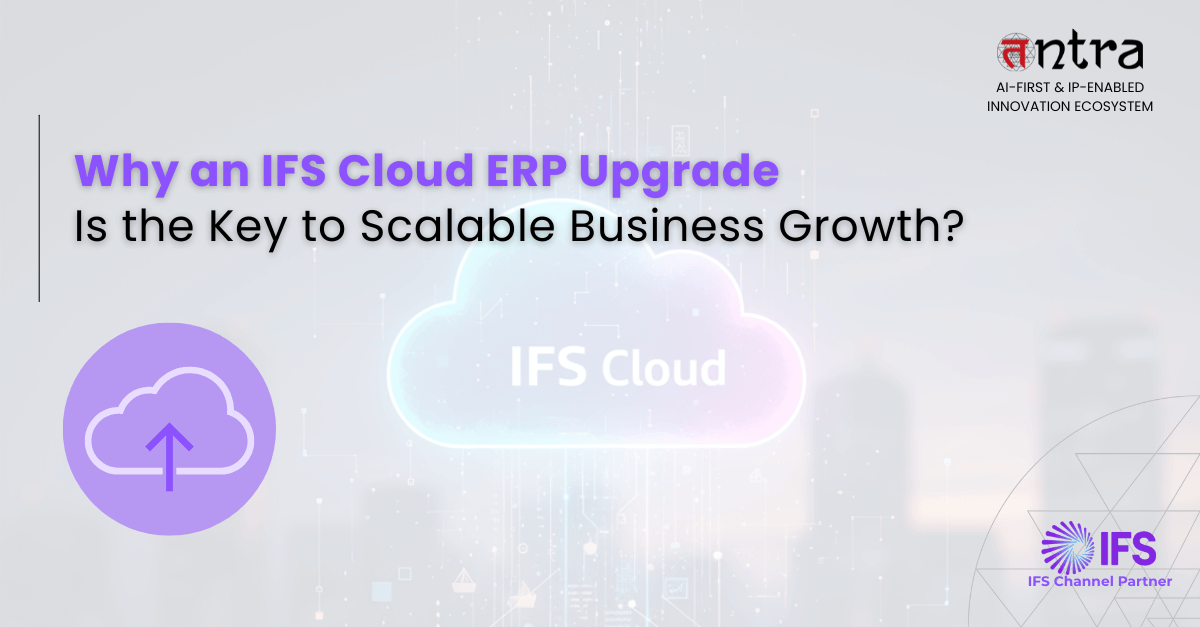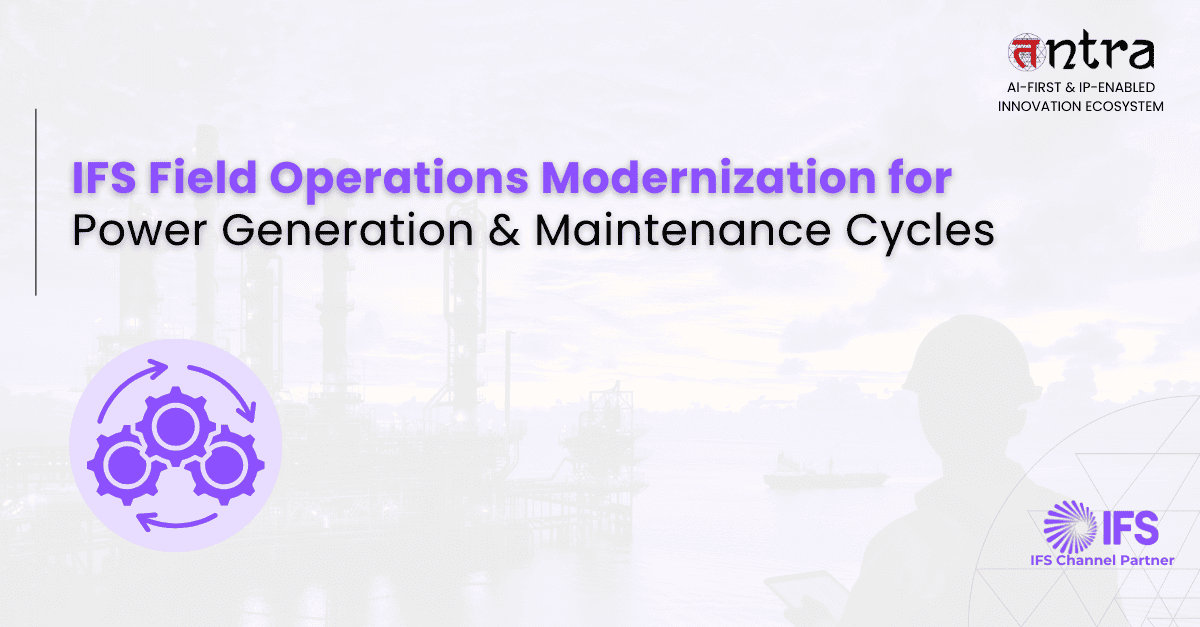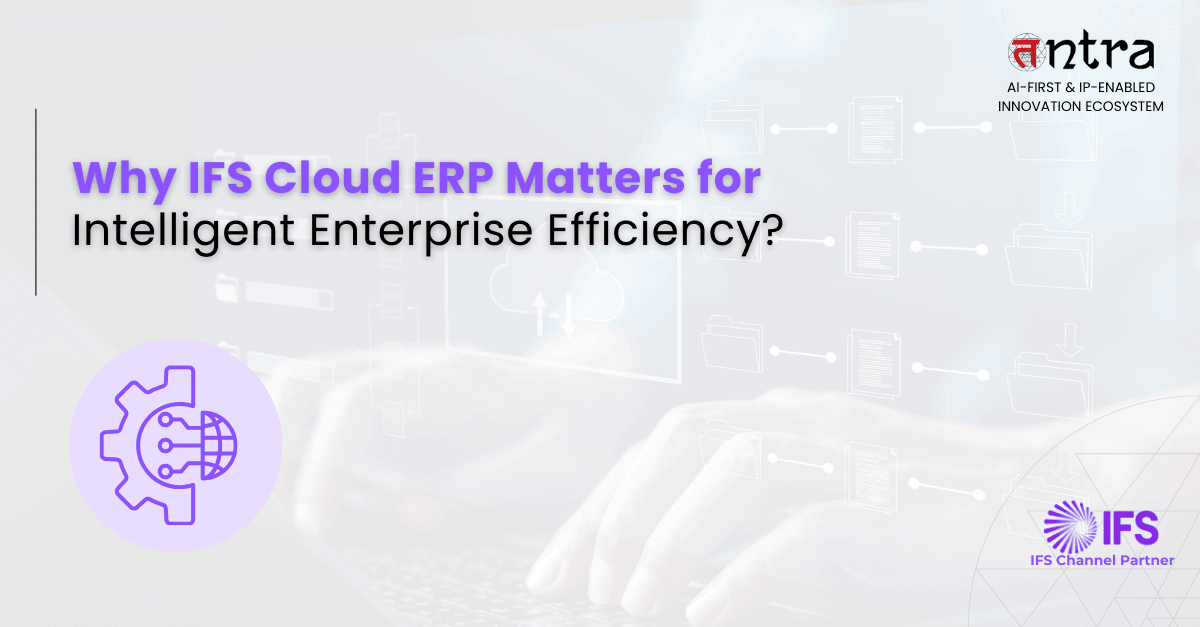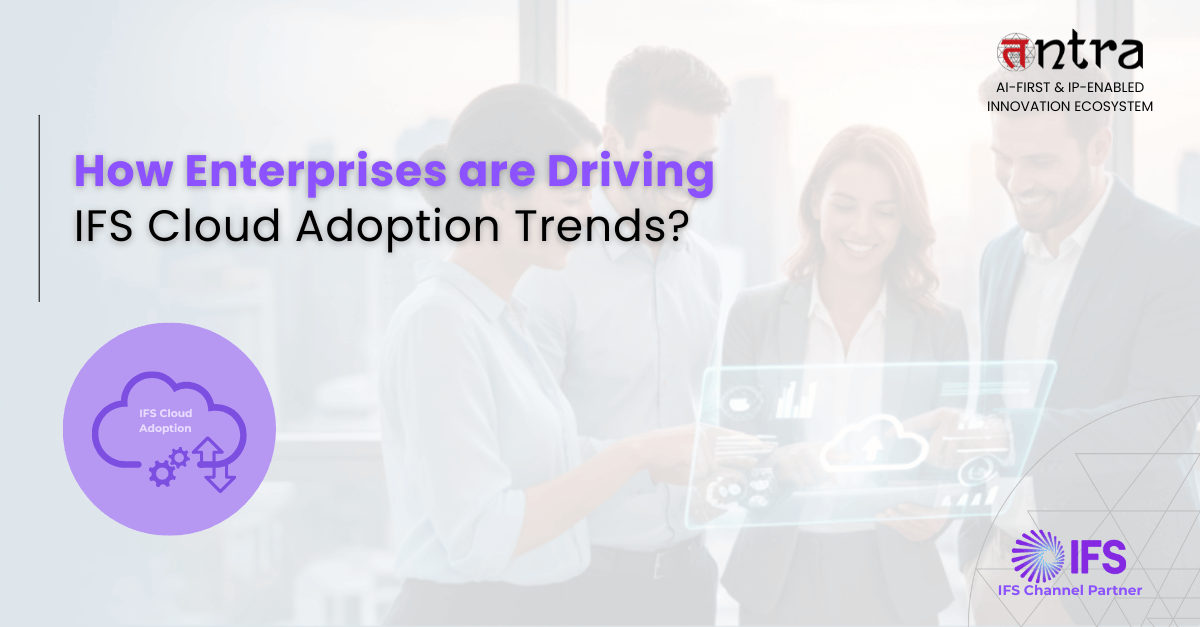
IFS Cloud Adoption Trends 2025 in the Middle East & India
Table of Contents
ToggleIFS Cloud adoption is accelerating across the Middle East and India, driven by the need for scalable, intelligent ERP solutions tailored to asset-intensive and service-centric industries. From energy projects in the Gulf to manufacturing hubs in India, organizations are embracing IFS Cloud services to modernize operations, reduce downtime, and gain real-time insights.
This article explores IFS Cloud adoption trends 2025, including regional differences, implementation strategies, and the growing role of IFS consulting services and IFS implementation partners. Whether you’re evaluating IFS ERP adoption trends or planning your own migration, you’ll find actionable insights here.
We know that you’re evaluating a move to IFS Cloud. You’re wondering how peers in the Middle East and India are adopting IFS, and what the future holds. This isn’t just a technology decision, it’s about transforming businesses in dynamic markets. Let’s talk about it.
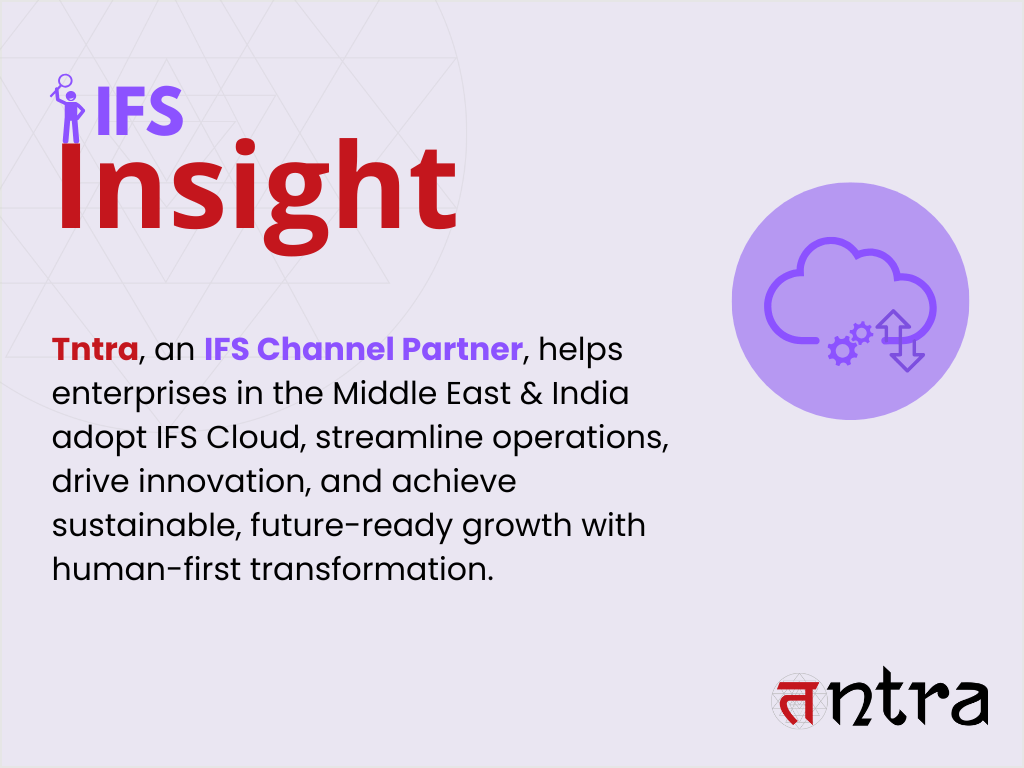
Why IFS Cloud Matters for Enterprises in Emerging Markets
Across both regions, governments and enterprises are fast-tracking digital transformation. Traditional on-premise ERP systems no longer meet demands for agility, compliance, and predictive intelligence. IFS Cloud in the Middle East and IFS Cloud in India offers a unified, flexible platform covering Enterprise Asset Management (EAM), service management, manufacturing execution, and more.
Decision-makers evaluating IFS Cloud implementation services are prioritizing speed, localized compliance, and long-term value — all while leveraging trusted IFS consulting services and regional partners.
IFS Cloud in the Middle East: Key Drivers and Industry Use Cases
From the UAE and Saudi Arabia to Qatar and beyond, enterprises in energy, aviation, and manufacturing are leading the charge in IFS Cloud ERP adoption in the Middle East. Initiatives like Saudi Vision 2030 and Dubai’s digital transformation drive have created fertile ground for IFS Cloud services, predictive maintenance, and asset lifecycle optimization.
- Energy & Utilities: With massive projects under Vision 2030 (Saudi Arabia) and Expo 2020‑led digital acceleration in Dubai, energy players are leveraging IFS Cloud services for predictive maintenance, compliance, and asset lifecycle optimization.
- Manufacturing & Aerospace: In the Emirates, having IFS Cloud in Middle East gives manufacturers agility to scale and aerospace entities an integrated platform to manage service, supply chain, and regulatory demands.
IFS Cloud implementation services are riding this momentum consulting firms and partners tailored to local regulations, languages, and service needs are helping businesses onboard confidently. The IFS consulting services ecosystem is alive and growing.
IFS Cloud in India: Growth Opportunities and Digital Transformation
India’s “Digital India” and “Make in India” initiatives are fueling rapid uptake of IFS Cloud solutions. From manufacturing to telecom and service industries, companies are turning to IFS implementation partners and IFS software consulting to ensure local compliance, streamline supply chains, and unlock real-time visibility.
- Manufacturing & Infrastructure: Enterprises are prioritizing digitized shop floors, real‑time supply chain visibility, and compliance and IFS Cloud enables this efficiently.
- Service Industries: From telecom to energy and services, organizations are adopting IFS Cloud solutions to unify service management, customer engagement, and field service gaining a competitive edge.
Here too, IFS implementation partners and IFS software consulting firms are critical they ensure that IFS Cloud solutions are tailored to India’s nuances: GST compliance, local tax rules, regional supply networks, and complex labor law realities.
IFS ERP Adoption Trends Across Both Regions
What do we see when we look at IFS ERP adoption trends across both geographies?
a) Rapid Cloud Pivot
Previously, many enterprises favored on‑premises IFS ERP. But now, with scalability and remote work demands rising, there’s a clear shift toward IFS Cloud adoption. Some industries expect double‑digit growth in cloud ERP projects over the next few years.
b) Hybrid & Phased Moves
Many organizations are not simply flipping a switch. Instead, they follow a phased approach: starting with core modules in IFS Cloud project management, service, asset maintenance then expanding. That’s where IFS implementation services shine, orchestrating seamless transitions.
c) Ecosystem‑Driven Delivery
The success stories are often built on strong IFS consulting services and IFS implementation partners. Organizations that leverage localized service providers fluent in regional regulation, language, and industry are reporting smoother implementation, faster ROI, and higher user adoption.
d) Modular, Flexible Deployment
IFS Cloud’s modular architecture resonates in markets where businesses want agility. They adopt “land‑and‑expand” strategies starting small, adding modules like finance, manufacturing execution, supply chain, or field service as maturity grows.
e) Focus on Service and Asset‑Intensive Industries
In both regions, industries with high asset complexity utilities, oil & gas, aviation, and heavy machinery are heavy adopters of IFS Cloud solutions. They crave unified solutions for service, maintenance, logistics, and compliance. IFS’s heritage in asset & service management aligns well.
Benefits of IFS Cloud Services and IFS Consulting Services
You might ask: what exactly are the IFS Cloud services that decision‑makers are leaning into?
- Core ERP Modules: Finance, procurement, inventory, project control used as building blocks.
- Service Management: Especially in the Middle East, aviation, defense, and facility management firms use IFS Cloud for advanced dispatching and mobile workforce management.
- Asset Lifecycle: Energy/gas companies tap into maintenance scheduling, condition‑based monitoring, spares planning.
- Manufacturing Execution & IoT: Integrated shop floor visibility using IoT sensors, production scheduling.
- Field Service & Mobility: Tech-savvy field teams in India especially value mobile‑enabled workflows, real‑time service history, and route optimization.
Local IFS consulting services providers in both markets integrate these services into broader digitalization initiatives, think smart metros in India, or smart construction in the Gulf.
Role of IFS Implementation Partners and Software Consulting
Here’s where I want to step into your shoes: You’re a decision‑maker weighing the investment in IFS cloud solutions. You care about:
- Business Outcomes: Faster, more reliable service delivery; less downtime; more predictive insights.
- User Adoption: Your people need intuitive, mobile‑ready tools. Cloud helps deliver that.
- Operational Resilience: Especially in the Middle East, where projects are critical, cloud solutions help adjust swiftly to change.
- Future‑Proofing: Cloud platforms receive continuous enhancements, new modules, AI capabilities, and analytics without costly upgrades.
You’re not just buying software; you’re enabling your teams, empowering service efficiency, bridging silos, and staying competitive. And these IFS implementation partners and IFS software consulting experts are your guides; they help your transformation feel human, grounded, and aligned with local culture.
Industry-Specific Applications of IFS Cloud
- IFS Cloud for Manufacturing in India
- Indian manufacturers are rapidly adopting IFS Cloud to digitize shop floors, streamline production planning, and comply with local tax and GST regulations. With real-time supply chain visibility, predictive maintenance, and integrated quality control, IFS Cloud ERP enables manufacturing enterprises to scale faster while maintaining operational efficiency and regulatory compliance.
- IFS Cloud for Oil & Gas in the Middle East
- Energy and oil & gas companies across Saudi Arabia, UAE, and Qatar use IFS Cloud services to optimize asset lifecycle management, predictive maintenance, and safety compliance. By unifying field operations, supply chain, and project controls, IFS Cloud in the Middle East delivers the agility and data transparency these high-stakes industries demand.
- IFS ERP for Energy Sector Transformation
- Utilities and power generation firms are leveraging IFS ERP solutions to modernize infrastructure, improve asset reliability, and integrate IoT data into decision-making. This energy sector transformation supports smarter grid operations, optimized resource allocation, and long-term sustainability targets, positioning enterprises for a future-ready 2025.
- IFS Cloud for Construction and Infrastructure Projects
- Construction and infrastructure enterprises adopt IFS Cloud to manage complex, multi-site projects with tighter cost controls, resource tracking, and regulatory oversight. The platform’s project management and mobile capabilities improve collaboration across contractors and subcontractors, reducing delays and enhancing compliance throughout the project lifecycle.
Common Challenges in IFS Cloud Implementation and How to Overcome Them
Let’s be candid: even the best initiatives face friction.
a) Change Resistance
Some teams may resist shifting from legacy ERP or spreadsheets. It’s not about tech it’s about comfort zones. IFS consulting services must lead with empathy. Training, walk‑throughs, storytelling help your people imagine life post‑IFS Cloud.
b) Data Migration Complexity
For enterprises in the Middle East and India with hybrid data multiple business units, old systems data migration is a challenge. Strong IFS implementation services are critical here. Map data carefully, validate with SME engagement and pace transitions.
c) Connectivity & Infrastructure Differences
Especially relevant in remote operations whether oilfields in UAE or factories in rural India cloud access may vary. Hybrid architectures and edge components may help ensure uptime while enabling IFS Cloud adoption.
d) Regulatory & Compliance Nuances
India’s GST, Middle Eastern VAT, labor laws, and sector‑specific regulations need local knowledge. That’s where regional IFS implementation partners shine. They calibrate and configure IFS Cloud systems so compliance is built in.
Emerging Future Trends
Looking ahead, what should you expect in IFS Cloud Adoption Trends for these regions?
a) AI & Predictive Analytics
IFS’s roadmap includes embedded AI predicting asset failures, optimizing dispatch, and forecasting demand. In environments like the Middle East’s data‑rich energy sector or India’s bustling manufacturing, these advanced analytics will become differentiators.
b) Deeper Partner Ecosystems
Expect more regional partners specializing in niche industries like smart infrastructure in the Gulf or tier‑2 manufacturing in India bringing vertical accelerators and language‑localized tools.
c) Cloud‑Native Extensions
With richly modular, cloud‑native architecture, clients will extend IFS Cloud with IoT, mobile apps, and localized dashboards making software not only powerful but also personal.
d) Collaborative User Communities
As more organizations adopt IFS Cloud, expect local user groups like “IFS Cloud India Community” or “Gulf IFS Cloud Practitioners” where experiences, tips, and regional templates are shared. That human network is gold.
Future Outlook: IFS Cloud Adoption Trends 2025 and Beyond
We hope this guide has felt more like a conversation than a corporate white paper—because that’s exactly what it should be. If you’re exploring IFS Cloud adoption, you’re thinking long-term, human-first, and value-focused. You’re looking for the right partners, the right modules, and a paced, empathetic approach to change.
In both the Middle East and India, the winds of digital transformation are strong. IFS Cloud adoption is no longer a distant trend—it’s already reshaping industries, streamlining processes, and empowering teams.
You, the decision-maker, are at the heart of that journey. With the right IFS implementation strategy—flexible, human-centered, and future-ready—you can turn IFS implementation services, IFS consulting services, IFS Cloud solutions, and IFS software consulting from buzzwords into catalysts for real, measurable change.
Start Your IFS Cloud Journey Today
Tntra is here to help you plan, implement, and scale your IFS Cloud initiatives across the Middle East and India. Our experts bring deep domain knowledge, proven frameworks, and a human-first approach to ensure your transformation succeeds.
📩 Ready to take the next step? Contact Tntra’s IFS Cloud Experts to book your free consultation today.
FAQs
How Does IFS Cloud Compare to SAP?
IFS Cloud is often seen as more flexible, modular, and easier to implement—especially for mid-sized, asset-intensive businesses. SAP offers broader enterprise coverage, but with more complexity and often higher cost.
Which Is the Fastest Cloud Adoption Model?
A phased, modular approach is the fastest and most effective cloud adoption model. It allows businesses to start with key functions in IFS Cloud and expand over time with minimal disruption.
Is IFS ERP Cloud-Based?
Yes, IFS ERP is cloud-based. It’s offered as a unified IFS Cloud platform that delivers ERP, EAM, and FSM capabilities through a modern, modular, and scalable cloud architecture.
What Are the Cloud Trends for 2025?
In 2025, expect AI-driven insights, industry-specific cloud solutions, modular deployments, and a growing emphasis on sustainability and compliance. IFS Cloud is already aligning with these trends in both the Middle East and India.
Which Industries Are Adopting IFS Cloud the Most in the Middle East and India?
Industries like energy, manufacturing, construction, telecom, and aerospace are leading IFS Cloud adoption—thanks to its strength in asset management, service, and real-time operations.
 Download IFS Guide
Download IFS Guide 